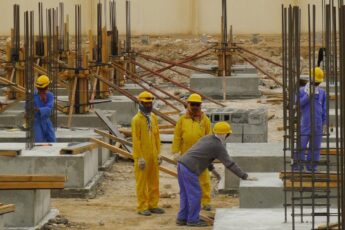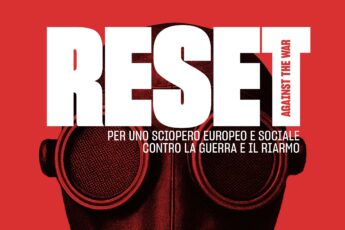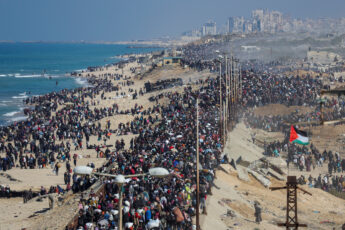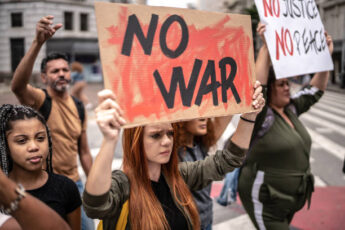
Statement of the Permanent Assembly against the War
More than 120 people from all over Europe and Central Asia gathered in Sofia on September 10th for the first physical meeting of the Permanent Assembly Against the War (PAAW) in the context of the Transnational meeting organized by the TSS Platform and Levfem. In Sofia we decided to continue seeking the widest possible convergence for a transnational politics of peace through online meetings and another transnational assembly in person, which is expected to be held in the winter. All the while, we will support and give visibility to all struggles and actions which are taking place against the war and its deadly consequences. In addition to reporting on the Assembly, PAAW also sees a need to highlight the latest developments and the need to increase the struggle against them.
The assembly in Sofia opened with interventions from countries that are or were directly affected by war – the Feminist Anti-War Resistance in Russia, activists from Ukraine, Kurdistan and Georgia. Starting from the situation there allowed us to grasp a continuing deadly process of restructuring of global relations that tries to cancel any political alternative to the status quo. The PAAW has recognized from the beginning that the war in Ukraine is extremely divisive, trying to impose everywhere an alternative between Atlanticism and pro-Putinism, a supposed civilizational clash between East and West, an all encompassing racist and colonial discourse. As a response, the PAAW has affirmed the need to build a transnational mass movement against the war that trumps and goes beyond these divisions. The discussion in Sofia and this statement confirms the importance of the PAAW as a space in which to openly discuss the war and build a transnational politics of peace that gains back the possibility of fighting for a future without exploitation and oppression.
The signs of what we have called the Third World War are emerging more and more dreadfully. We have seen military tensions escalating in Central Asia on the border areas of Kyrgyzstan and Tajikistan, also between Azerbaijan and Armenia. Due to the Russian demobilization in the area, tensions between nationalist and religious groups are exploding, causing more violence and many deaths. These regions are already on their knees for the effects of the sanctions that hit hard, not only assets and oligarchs, but also migrants’ remittances that support the livelihoods of millions of families. Using the ongoing struggle for hegemony, and profiting from its new centrality in international warfare the Erdogan regime tries to expand its power and break the revolution in Kurdistan by low-intensity warfare against North-East Syria and usage of chemical weapons in the mountains.. According to the EU, in Ukraine a “war for Europe” is being fought. That propagandist stance is used to ignore or justify the level of violence and misery that Putin’s aggression and the Western reaction produce well beyond European borders.
While in Ukraine a huge humanitarian crisis is underway, hardened by the approaching winter, with millions of displaced people in need of support that will not arrive, we have seen Russia vocalizing increased nuclear threats, with opponents assuring that they would pay back in kind. This impending doom aims to prevent any possibility to claim in the present something more than mere survival. However, since Putin’s announcement of the partial mobilization of around 300.000 men, almost as many people left Russia, while women-led protests arose in dozens of Russian cities followed by thousands of arrests.
In front of this, some European states are imposing harsher restrictions on Russian citizens crossing their borders. Initially, the declared purpose was to hurt the Russian Federation even further, fostering anti-regime sentiments within it. But after Putin announced the partial mobilization, the EU declared that fleeing mobilization does not equal refusing the war and that the EU needs to take care first and foremost of its own security, limiting asylum rights as it is used to do. While European countries displayed a benevolent, paternal attitude by welcoming women and children from Ukraine – women who are now left to what all migrant women seem in the end to deserve, that is, poorly paid and exploited jobs in essential sectors, and institutional racism – they are now brutal toward men who refuse to fulfill their natural duty to die for their country.
We see a clear line connecting this attitude of the European elites with Putin’s patriarchal warfare, condemning men to fight and die, prizing “mother heroines” and campaigning against abortion with ads of foetuses and child soldiers saying: “protect me today, I can protect you tomorrow”. Women are breeders of soldiers; children are the soldiers of the future. We see a red line between Erdogan’s patriarchal politics against sexual freedom and the will to silence Kurdish resistance and democratic feminist project. A patriarchal and patriotic line runs across the fronts of the war.
We are seeing energy prices skyrocketing all around Europe because of the global instability and financial speculation worsened by the war. This hits especially hard those workers and migrants already impoverished by years of precariousness and cutbacks of public spending. At the heart of the European end of the NATO alliance, governments have appeared wrapped in national flags to implement further vicious attacks on workers, women, migrants and LGBTQ+ people. In recent weeks the parliamentary circuses have spewed up more governments, such as in Sweden and Italy, to join the likes of those in Hungary and Poland. In the UK the clique around the newly appointed UK PM Liz Truss is preparing an assault on state benefits and public services while they attempt to ensure that wage levels are destroyed by inflation.
The UK politicians have repeated time and again that energy bills and other costs are spiraling because of the war in Ukraine. After years of austerity workers are now resisting in the workplaces and communities. A wave of strikes is continuing to try and defend wages and support is growing for grassroots resistance such as in the “Enough is Enough” and “Don’t Pay” campaigns. Strikes are spreading around Europe and will grow in the winter, showing a mass refusal to have one’s wage cut back by inflation.
We refuse the war logic and the national and religious divisions it imposes. We stand with those who defend themselves as well as with all those who refuse conscription and decide not to obey and not to die for their countries. We stand with all those who refuse to pay the price of the war with their wage. We claim open borders and freedom of movement for all.
We can now see events that seemed previously disconnected and part of scattered local tensions as tiles of the same world restructuring and conflict. We have the task to bring these fragments together. We will strengthen transnational bonds to navigate the deadly mess in front of us, from Kyrgyzstan to the UK, from Northern-Syria to Bulgaria, from Sweden to Italy and Greece.
Borders have been used by the nation states and their alliances to imprison us and ensure that we can only move at our extreme peril unless it suits the bosses’ system. Now, increasingly, we are expected to give up our lives to defend or redraw those borders. In place of those disastrous instructions we need a transnational politics of peace.
We are now seeing waves of strikes and mass demonstrations resisting the attacks imposed on working class living standards to pay for increased militarisation and to prop up profits. The refusal of the nuclear threat; the refusal to obey and die; the refusal to be heroine mothers of someone destined to kill or die at the front; the refusal to be beaten up and raped; the refusal to pay the price of the war and its side-effects: all this can become one powerful transnational strike against the war politics we are living in.





